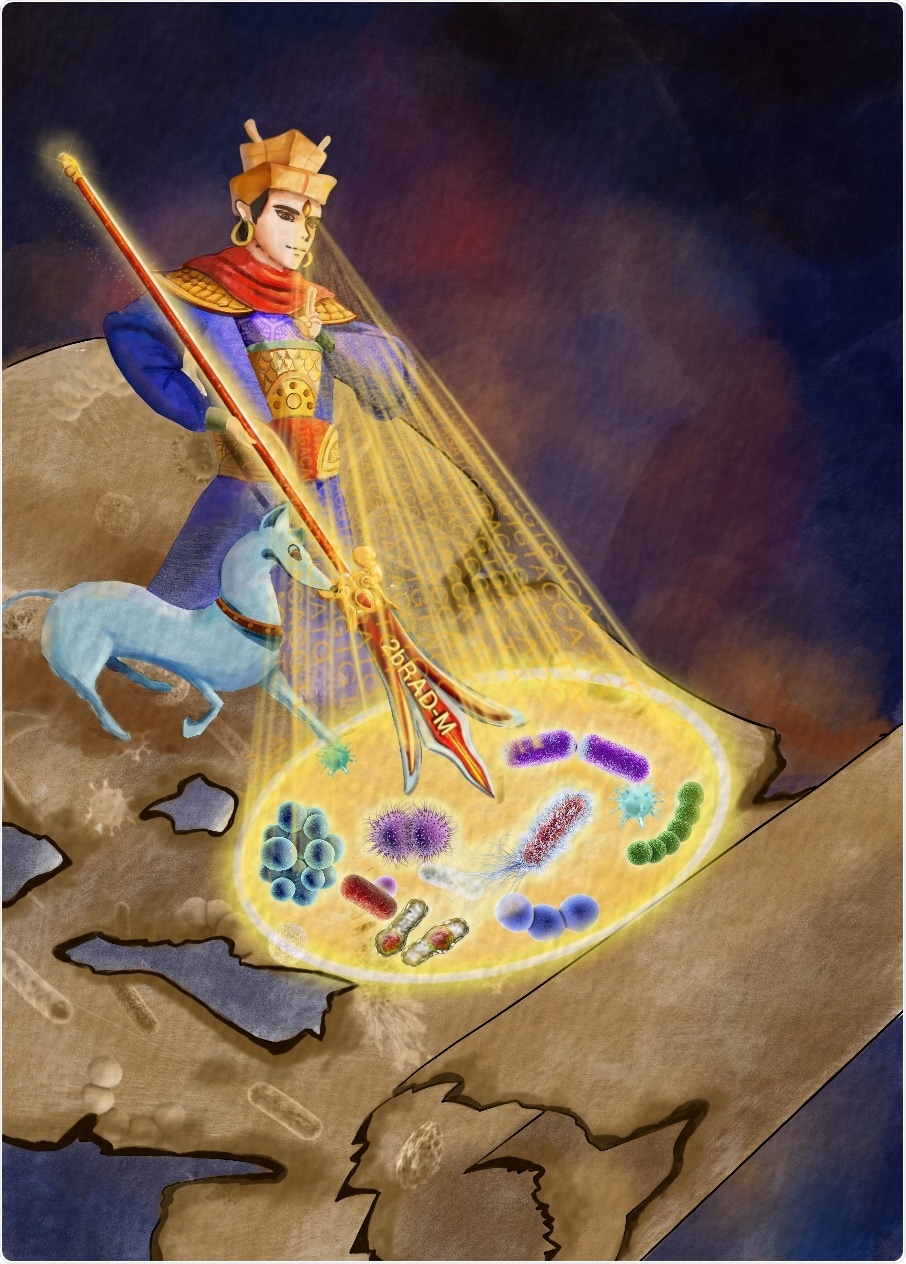A research team headed by the Chinese Academy of Sciences (CAS), Qingdao Institute of Bioenergy and Bioprocess Technology (QIBEBT) developed a low-cost metagenome sequencing technology. It allows for high-resolution exposure of a microbiome’s full “landscape” of species, even from low-biomass, damaged, or polluted samples.

The 2bRAD-M technology for microbiome sequencing. Image Credit: Yang Liu and Ningfu Yu.
The study was published on January 26th, 2022, in the journal Genome Biology.
The “microbiome” is a community of fungi, bacteria, protists, and viruses that live in and on human bodies, as well as any other environment. Researchers must do metagenomic sequencing, which is the simultaneous sequencing of genetic material from numerous species, to determine which microorganisms are part of a specific microbiome.
Even advanced metagenomic sequencing, however, has a number of serious drawbacks. The technique is divided into two categories: amplicon sequencing and whole metagenome sequencing (WMS).
Amplicon sequencing is a low-cost procedure. Unfortunately, it only provides information on microbiome members at the genus taxonomy level. Taxonomic information at the species or strain level is difficult to come by. Amplicon sequencing also has the drawback of being able to detect bacteria, archaea, fungus, and viruses individually rather than all at once.
WMS can capture entire DNA sequences of everything in the sample, including bacteria, archaea, fungi, and viruses, at a better taxonomic resolution than other methods. This provides a lot more information, but it is also a lot more expensive. WMS also demands a significant volume of high-quality DNA.
What we need is a low-cost sequencing method that can enable accurate, species-resolution identification of all microbes at the same time, and can handle low biomass samples.”
Zheng Sun, Study First Author and Researcher, Single-Cell Center, Qingdao Institute of Bioenergy and Bioprocess Technology
The researchers devised the “2bRAD sequencing for Microbiome” technology, often known as 2bRAD-M. This makes use of restriction site-associated DNA sequencing (RADseq), which digests genomic DNA from stool, skin, or environment-surface materials into fragments of 25–33 base pairs (pairs of nucleotides) using Type IIB restriction enzymes (proteins that cleave DNA at specified locations along the molecule).
Only these digested segments—around 1% of the metagenome—are sequenced using the 2bRAD-M method, which can yield profiles spanning bacteria, archaea, and fungus, and down to the level of species, not just genus.
By needing only, a single picogram (a thousandth of a nanogram) of total DNA, the process can cheaply and accurately generate high-resolution profiles even for hard-to-sequence samples where there has been high host DNA contamination, or the DNA is severely fragmented or otherwise degraded.”
Shi Huang, Study Co-First Author, Single-Cell Center, Qingdao Institute of Bioenergy and Bioprocess Technology
Microbes are involved in cancer formation, which has been one of the most exciting discoveries in recent years. Using 2bRAD-M, the researchers demonstrated that the microbiome profiles from cervical cancer tissues may be revealed from formalin-fixed paraffin-embedded (FFPE) samples, which are often poor in quantity, damaged, or contaminated by human DNA. Such profiles might be used to help in the early detection of cervical cancers.
In the future, we hope to further develop the 2bRAD-M technique and explore its various clinical applications.”
Jian Xu, Study Senior Author and Director, Single-Cell Center, Qingdao Institute of Bioenergy and Bioprocess Technology
“Ultimately, we hope that 2bRAD-M would become a cost-efficient, popular tool for microbiome research and conquer various challenging tasks that beyond the reach of current techniques,” Professor Shi Wang from Ocean University of China, Study Senior Author concluded.
Source:
Journal reference:
Sun, Z., et al. (2022) Species-resolved sequencing of low-biomass or degraded microbiomes using 2bRAD-M. Genome Biology. doi.org/10.1186/s13059-021-02576-9.